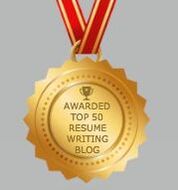Real Ways to Make Money From Home for FreeI've been posting about remote work opportunities or even innovative ways to make money for some time. It all started with 20 Places to Find Remote Jobs in December 2019. Later in March 2020, there was 62 Places to Find Remote Jobs Online. A month later in April 2020, there was the list titled 12 Quick and Easy Ways to make Money Online. The latest similar post wasn't so much about working form home, altough it could be. In February 2022, I released a list of Bit Coin Jobs. Today, I have a NE W list. Below is my latest of list of 21 Real Ways to Make Money From Home for Free. I hope you will find it helpful.
About the AuthorMandy Fard is a Certified Professional Resume Writer (CPRW, CMRW) and Recruiter with decades of experience in assisting job seekers, working directly with employers in multiple industries, and writing proven-effective resumes. Create a Side Hustle that Matches Your PersonalityMore than one in three Americans have a side hustle, and the numbers are increasing rapidly. Making money is usually the main motivation, but there can be other rewards as well, especially if you focus on creating something that matches your personality. It’s important to think about how your endeavors will affect your overall quality of life. After all, you may be investing a lot of your free time and energy in them, on top of your full-time job. How can you find a side hustle that meets your individual requirements? Study this quick guide to get started. Nonmonetary Benefits of a Side HustleSome of the highest paying gigs are tutoring and website design. However, there are less tangible factors that can be just as important as income. Consider these strategies:
Developing Your Side HustleAsk yourself what you like to do and what you do well. The work you choose may be related to your current career or it may take a very different direction. Keep these tips in mind:
Making Your Side Hustle Work for YouTake advantage of the opportunity to be your own boss. Pay attention to the necessary details and structure your work in a way that suits your own natural style. Use these techniques:
Your side hustle may become your full-time job, or it may remain as one rewarding way to spend your leisure time. With the rising cost of living, even senior are looking for gigs that they can turn into seniors jobs for themselves. Consider these 6 itps to turn your side hustle into a full time job. Find something that will give you personal satisfaction as well as extra cash. About the AuthorMandy Fard is a Certified Professional Resume Writer (CPRW, CMRW) and Recruiter with decades of experience in assisting job seekers, working directly with employers in multiple industries, and writing proven-effective resumes. Get More Interview InvitationsThe average job search currently takes about 5 months. That can seem like a very long time if you’re not seeing any results for your efforts. Getting more interview invitations can help you stay motivated. There are other benefits too. You can expand your network and learn more about your industry. Plus, each interview gives you an opportunity to practice for the crucial time when you’ll get the job offer you want. Are you tired of sending out applications without hearing anything back? Learn how to increase your chances of being called in for an interview. Polishing Your Application
Following Up
A long job hunt can strain your finances and your self-esteem, especially if you’re unemployed. Going on more interviews could shorten your timeline and help you make a more positive impression on your next employer. About the AuthorMandy Fard is a Certified Professional Resume Writer (CPRW, CMRW) and Recruiter with decades of experience in assisting job seekers, working directly with employers in multiple industries, and writing proven-effective resumes. Best Time to Schedule a Job InterviewWhen is the best time to schedule your interview? The easy answer is whenever it works for the interviewer! After all, that’s the goal — to get the interview, and then the job offer. But what if you are offered a choice of dates and/or times for the interview? When should you choose? Is it better to be the first person interviewed? Or to be one of the final candidates considered? Should you schedule your interview for the morning? Or the afternoon? And, if you’re offered the option of a virtual interview, or meeting in-person, which should you choose? Here are the pros and cons of being towards the front of the pack, one of the last, or somewhere in the middle. Where Do You Want To Be In the Schedule?Interviewers compare candidates against other candidates — if you are the first, other applicants will be judged against you. This sounds good — but unconsciously, the interviewer is looking for an improvement over you. “Contrast bias” occurs when an interviewer compares candidates against each other. It’s a common effect in the hiring process, as candidates are judged in comparison with one another instead of each candidate being assessed individually on his or her skills and qualifications. This can be a positive if you are a stronger candidate than the other applicants being interviewed, but it can also be a negative as the interviewer may unconsciously be looking to find someone “better” than you, even if you’re the perfect fit. You also don’t want to be the last candidate interviewed — especially if a lot of applicants are being considered. Unless your qualifications are substantially better — or different — than the others being interviewed, it’s harder to stand out. If all the interviews are being conducted on the same day, it’s also likely the interviewer may be tired — conducting multiple interviews in a single day can be draining. A key sign of this is if the interviewer says something like, “Did I already ask you…” — that’s a signal that the applicants are all starting to blend together and that you need to especially make yourself stand out. If possible, you want to be in the early to middle part of the list of candidates interviewed. If you’ve ever watched “America’s Got Talent” or “American Idol,” you’ve seen this principle in action. As the days grind on, the decision-making process gets shorter and shorter as the patience of the judges wears thin. An act that might have advanced if it had been considered earlier sometimes gets a quick “no” on the next-to-last or last day of judging. This is an especially important concept for screening interviews (when the applicant pool is being narrowed down for more in-depth interviews) or in a first-round interview (when second or third interviews will be conducted). The interviewer may have already said “yes” to several other candidates, and may be getting mindful of not wanting to have to interview too many candidates in the next round. If you are told that interviews will be conducted over a period of three days, for example, try to schedule your interview in the middle of the first day, or on the second day. Try not to be at the very front or the very end of the interviews scheduled. What Time of Day is Best?Don’t be the first interview of the morning if you can help it. Your interviewer might be running late if he or she runs into traffic (for an in-person interview) or if the interviewer encounters an unexpected situation when beginning the workday. An early-morning interview could be derailed by family/home issues — if you’ve ever walked out the door to a flat tire in the morning, you get it. You also don’t want to be the last thing on the interviewer’s schedule before they get to leave for the day, or they might be impatient to wrap things up. You don’t want to have a great conversation cut short by, “Sorry, I have to leave here by 5 p.m.” Of course, a premature ending to the interview can also happen when the interviewer has another candidate to see, or another task that needs completed. You can ask when scheduling the interview how long you should block out for the interview. If offered a choice of the time of day, consider your natural preferences too. If you are a morning person, try to schedule your interview between 10-11 a.m. Too close to noon and it is possible that you, the interviewer — or both of you — will be getting hungry. If you’re a night owl, it might be difficult for you to be at your best for a morning interview. In that case, consider an interview time in the mid-afternoon. But don’t select a time that is too close to lunchtime, or you — and the interviewer — might be a bit more tired, especially after a carb-heavy lunch. What Day of the Week is Best?What is the best day of the week to schedule an interview, if you’re given a choice? Tuesday or Wednesday, according to the experts. Mondays can be hectic, especially for interviewers that have hiring responsibility alongside their other normal job functions. Fridays aren’t always a good choice either, as interviewers sometimes mentally “check out” after a busy week. A Friday before a holiday weekend is an especially bad time. And try not to schedule the interview for the day after a holiday — the interviewer may have to catch up on some things that backed up while they were out of the office. In-Person or Virtual Interview?According to HireVue’s 2022 Global Trends Report, 37 percent of more than 1,600 hiring leaders surveyed said they have moved to a combination of both in-person and virtual interviews. Both types of interviews have their pros and cons. If offered the choice, consider these factors:
Questions to Ask When Scheduling the InterviewThere are some questions you can ask before you select your interview time and date. Some of these include:
The Most Important Thing to Consider in Job Interview SchedulingThe most important factor for success in a job interview isn’t the time of day or day of the week -- it’s your qualifications for the role, your preparation for the interview, and the connection you make about your suitability for the position. The ideal situation, of course, is that you interview when there are few distractions, after a couple of weaker candidates, you and the interviewer both have high energy levels, and you are the best applicant in the bunch. But you can only control a few of those factors, so take the best time, date, placement, and format and make the most of it! About the AuthorMandy Fard is a Certified Professional Resume Writer (CPRW, CMRW) and Recruiter with decades of experience in assisting job seekers, working directly with employers in multiple industries, and writing proven-effective resumes. |
Categories
All
powered by Surfing Waves
AuthorMandy Fard is a Certified Professional Resume Writer (CPRW, CMRW) and Recruiter with decades of experience in assisting job seekers, working directly with employers in multiple industries, and writing proven-effective resumes. Archives
July 2024
|
-
Greater Los Angeles
and Kern County
-
[email protected]
.







 RSS Feed
RSS Feed



